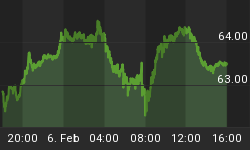I wrote about money and debt quite a few times before. Amid Japan's coming out deflation and US large debt problem, let me elaborate further on the subject here.
In a normal society, money is an asset. A transaction is complete and extinguished when money and goods changed hand. Buying a loaf of bread with gold is one such transaction since gold itself is an asset.
Today, money is created through borrowing - pure and simple. When you receive that new creditline/mortgage/loan, money is created out of thin air. This is how money is created and how prices managed to rise amid technology improvements. Just look at how much money is created since 1970 (M3 from less than 800 million in 1970 to now nearly 10 trillion, or about 13 fold increase in 35 years).

Under this debt-as-money scenario, the paper you get for giving up a loaf of bread isn't worth a thing until you exchange that paper for some real goods. I don't want to discuss in detail again the fairness of this game, suffice to say for every $1,000 credit you get, someone up there gets a credit tens and hundreds of times larger than yours and when they go belly up they get bailed out with public money.
Now I want to talk one thing about debt that other analysts rarely understand. Debts are a feature created by man. It's abstract, a promise that can be broken. When the cure for small pox is found or when the first airplane is flown, it's knowledge that lasts forever. When a building is erected, it stays there for decades and more. The human advances stay permanent but debts (and debt-based money) do not.
I saw a TV program, where an Australian doctor was trapped in a train cargo. Inside there was a label that says the cargo is cooled to a freezing temperature. A 3-day ride later, the train approached the station, the doctor was found dead in the cargo and people saw the supposingly frozen cargo to be unplugged - the doctor died of his fear and imagination.
So what's my point? Debts are purely psychological. Don't be fooled into thinking that debts destroy wealth and knowledge, debts merely facilitates wealth exchange. Your neighbor's Ferrari will still exist, just car's owner changes.
Now let's talk about Japan, Japan had nearly 20 years of stagnant economic growth and real estate prices under the pretence of debt-caused deflation. Does this mean Japan created no wealth and advances in the last 20 years? Check out the cars in your driveway and local electronic store - you know they accumulated lots of know-how and Japan is world's largest saver.
All that debts did to the Japanese is creating a 2-decade-long pent-up demand. It takes a flip of a switch in mental attitude to go from deflation-wealth-preserving mode to inflation-spending mode, and I believe Japan in 2005 has undergone such shift in attitude (see market update). The Japanese economy I see for the next decade is a robust one that revives through Chinese and Japanese domestic consumption.
On the other side of the coin, as long as the US government promotes easy credit and US public resist from shifting to the savings mode. We will continue towards hyperinflation.
Paper money eventually resorts to hyperinflation without fail. The trick is the timing. Frequently people ask me what happens after hyperinflation. Deflation? Yes, in a way. After hyperinflation, we start with a new currency. The unit of measure changes completely therefore it will be tough to compare prices before and after the currency transition. The ratio of leveraged assets to unleveraged assets should decline by orders of magnitude. So when the new currency is instituted after the last one blows up, the exchange ratio between an apple and orange should still be the same, but it will most likely take a lot fewer apples to buy an apartment or a share of google stock.
In hyperinflation, most public aren't affected seriously since most of them are broke. Your job as a saver is to identify things to keep that will preserve your savings. Things to stay away are paper currency and leveraged assets. Things to get into are unleveraged tangibles of necessity - soybean, copper, gold, oil, land. Those are basic commodities that survive through the ravage of hyperinflation.















